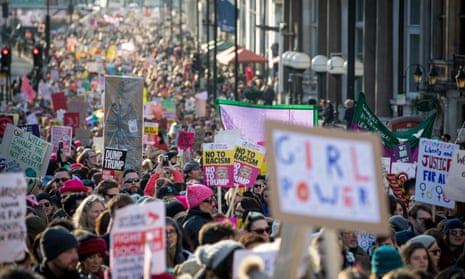Growing up, news headlines often seemed disconnected from my lived experience. Important voices were spoken over or edited out and the rise of social media left little room for reflection. I became a journalist out of curiosity, and a desire to shine a spotlight on dark places and amplify different voices.
Chance and good timing have allowed me to begin my career in that direction. Since graduating in 2014, I have reported on terrorist attacks across Europe, and covered knife crime and immigration in the UK. Some questions have been answered but more often than not they have multiplied. This year, against the backdrop of news shaking the world daily, I have continued to ask myself how I can add something constructive to the coverage – and 2017 has been a huge learning curve.The day after Donald Trump’s inauguration as US president, I covered the Women’s March on London with three female colleagues. Between 80,000 and 100,000 people took to the streets to support women’s rights, as sister marches happened all over the world. We knew it was an important moment – the Facebook Live footage we streamed from the march was viewed more than a million times – but on a personal level it also felt important to be on the ground, present in that moment .
A week or so later, Trump’s “Muslim ban” triggered further protests; I remember wondering whether the momentum could be maintained. The underlying issues behind these protests felt personal in this increasingly globalised world.
Trump’s rise to power when read alongside the Brexit referendum result led pundits to consider whether the spring might bring a shock victory for Marine Le Pen. For a few weeks all eyes were on France, and I headed to Marseille to report on the fractures in French society. Following an intense election, I decided to keep my head down over the summer, establish a quieter routine over the period of Ramadan and take time to develop some new stories.
A week before Ramadan, the Manchester Arena was attacked. Young girls attending a concert by Ariana Grande were targeted and killed by a young British Libyan suicide bomber. I had reported from Paris and Brussels after other terrorist attacks, so I set off for Manchester.
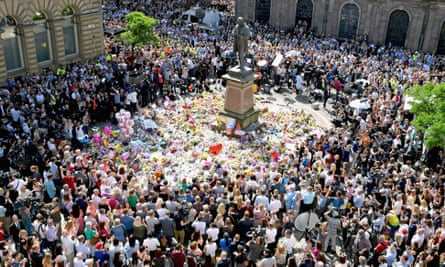
There, the media circus seemed inescapable. But press conferences and camera scrums aren’t the places where the most important stories are happening, and I wanted to try to understand what the attack meant to people. My mum phoned to ask how things were going. She grew up in Manchester, met my father at the university and got married at Didsbury mosque, the focus of the news that week.
I asked my editor for time to cover the story sensitively. I heard whispers from people in the Libyan community, but immediately after the attack, many were not yet ready to speak. We decided I would go back to Manchester when the circus had died down to deal with some of the questions still unanswered.
The following Saturday, I was shooting a piece about youth engagement in politics at a Grime4Corbyn event. I had interviewed Jeremy Corbyn when he was running for Labour leader and genuinely thought that the buzz around him would translate to some votes even though older, more established journalists didn’t believe it.
I was backstage with Alex, a friend and journalist for a leading international news agency, when he got a phonecall. “Suspected terrorist attack, London Bridge,” he said, swiftly packing his camera kit into his rucksack. “I have to go, I’m on call and there’s no one else in London tonight.”
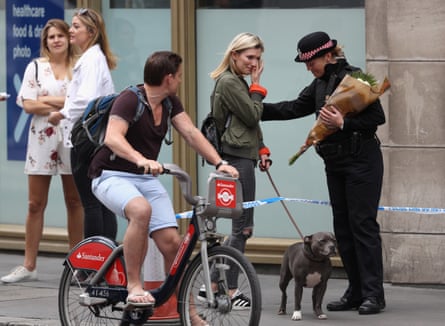
There was no way he could carry his gear by himself, and he needed an assistant producer. “I’m coming with you,” I said, heaving the bags into the boot of his car.
We drove towards London Bridge, then from Liverpool Street we had to make our way towards Borough Market on foot, through crowds of panicked people. At one point we were caught inside a cordon, with dozens of armed police in combat helmets marching at the end of the deserted street. Alex warned me not to run; from a distance the tripod and rucksack might look suspicious to the armed police.
I’d be lying if I said I wasn’t scared. But we had a job to do and not a lot of time. At about 5am, after Alex shot footage that would be used by TV channels across the world, I left to go home to bed.
Later, when I woke, the horror of it all grew. Details and numbers of casualties mounted. Messages came through from friends around the world, checking I was safe.
The UK general election happened just a few days later. And yes, young people did make their voices heard in polling stations and, as a result, newsrooms.Friends expressed triumphant feelings about what had happened on the political scene.
Those feelings were quickly forgotten days later when the country woke to the news that a tower block in West London was on fire. An unknown number of people and their families had died.

That morning I went down to Grenfell to cover events. As in Manchester, I felt acutely aware this was a community where people were in shock. I drew back from mourning relatives, trying to respect their privacy. But I also wanted to find a way to use my role as a journalist to support those affected.
By the weekend the anger was visible. It appeared that no authority was taking responsibility. Information was slow to be released. Theresa May’s fleeting visit left a bitter taste.
I went to an open meeting at the mosque set up for victims of the fire. The room was full of people who had lost everything and couldn’t even hold funerals.
I stood in that mosque in the middle of Ramadan, feeling utterly helpless. I couldn’t pretend this wasn’t happening in our city. I just needed time to find a way to tell some truth about these events while respecting people who were sick of predatory journalists trying to capture suffering on camera. .
My colleagues and I were exhausted. The Guardian doesn’t have a huge team of video producers, like some of the broadcasters, but everyone was doing their best. Sunday was Father’s Day, and one colleague left his son at home to come and work. He had previously covered conflict zones in the Middle East. I took him to where the cameras were lined up filming the ruins of Grenfell. We were next to the church and flowers were still being laid. The sound of the congregation singing hymns came through the open windows. I turned and saw he was crying.
Later that day I interviewed a local artist, AJ Tracey, and his brother Mickey, two young men who were part of the community, but had enough distance to be able to express some of the emotions that were bubbling in the area. If I did nothing else, I knew amplifying these voices was the best thing I could do for now.
Completely drained, I was sent home in a taxi by my editor late that night. Twenty minutes later I heard helicopters overhead. Reports were coming in that a car had driven into a crowd leaving a mosque in Finsbury Park. That’s close to my sister’s house, just down the road from me. She wasn’t answering her phone. I asked the driver to take me as close as he could.
I saw armed police. It felt like deja vu - the same uniforms and helmets I’d seen a few weeks earlier at London Bridge. My only concern was for my sister: I pushed past the police cordon, rushed to her house, and hammered on the front door. She finally opened it, rubbing her eyes; she had been sleeping, unaware of events down the road. Relief swept over me. I hugged her, sent a quick video of the scene to the office, and went home to bed.
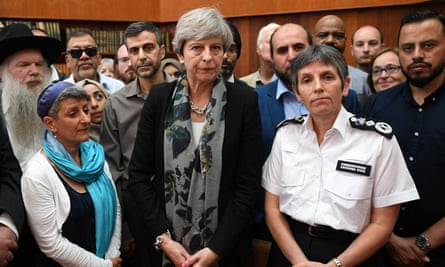
The following day, in the office, the Guardian’s deputy editor said that throughout his whole career he had never seen a news cycle like this. That felt reassuring in a way. There’s a bit of a taboo around talking about stress in journalism – you don’t want to be seen as too sensitive for the job – so his recognition that these were exceptional circumstances felt important.
My editor insisted I didn’t change my imminent plans to spend Eid with my family in Algeria, so I went to Oran, my father’s home city, for two weeks. It was only when I got there that I realised how stressful things had been over the last months. Priorities were put into perspective. I felt lucky to be able to watch my grandmother make cous cous; I appreciated sitting in my uncle’s car by the sea listening to music on the radio; I enjoyed staying up late laughing with my cousins.
I thought about all the families back in the UK, affected by the events that had rocked the country over the summer. The nurses, doctors, firefighters, police, volunteers and members of the public who were on the frontline. The people who stepped up and stepped in, and barely had the time to process one thing before another happened.
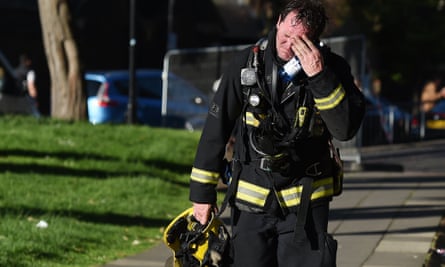
At these times, the least journalists can offer is honesty, transparency and openness – the bare minimum if we are to make sense of the world and build trust that will allow people to tell their stories. I hope that I’ll be able to continue striving for that in 2018, whatever it brings.
